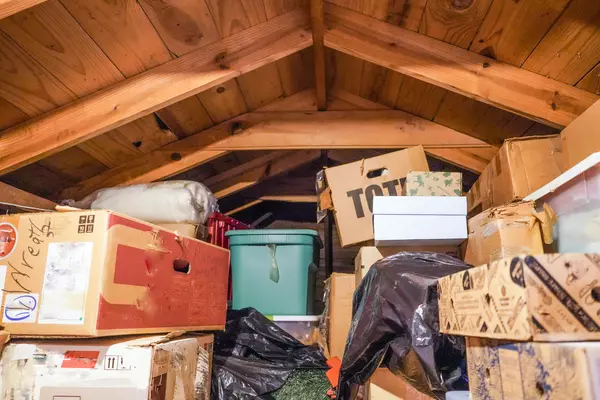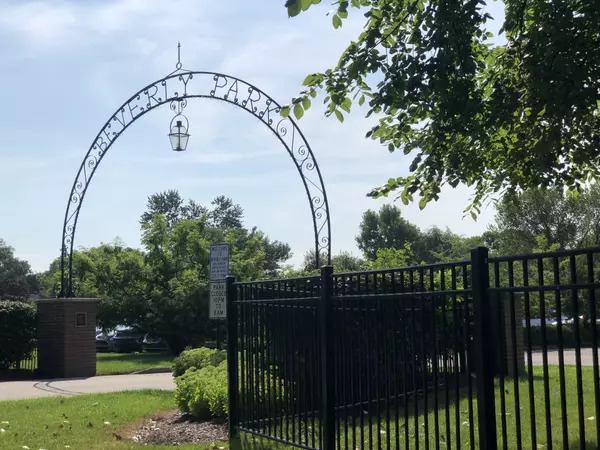

Do These 3 Things Before You Sell Your Home
Selling a home in today's real estate market requires a strategic approach, especially as the landscape continues to shift and days on the market increase in some areas. We are seeing houses stay on the market longer compared to last year. In Birmingham, days on the market have increased from 29 days 1 year ago to 37 days today but in Bloomfield days on the market actually dropped a day and is now 29 days. While in 48306 Rochester Hills-Oakland Twp, days on market is now 25 days up 19% from a year ago. There is no doubt the market is shifting and to ensure a successful sale in a timeframe you want, here are the 3 the crucial steps that I recommend to enhance your home's appeal and attract potential buyers. 1. De-cluttering: In a market where buyers are becoming more discerning, creating a clean and clutter-free environment is essential. Potential buyers want to envision themselves in the space, and a cluttered home can be distracting and overwhelming. Begin by depersonalizing the space, packing away personal items, family photos, and excessive decorations. Consider donating or storing items that are not necessary for day-to-day living. De-cluttering not only makes your home more visually appealing but also gives the impression of more space—a critical factor for many buyers. Tips for Effective De-cluttering: Focus on the kitchen first and remove everything from the countertops. Next turn your attention to your home office and then to high-traffic areas such as the living room and bedrooms. Remove excess furniture, especially large or dark pieces of furniture, to create an open and spacious feel. Organize closets and storage spaces to showcase ample storage potential. 2. Painting A fresh coat of paint can work wonders in revitalizing your home's appearance. Choose neutral, contemporary colors that appeal to a broad range of buyers. Neutral tones create a blank canvas for potential buyers, allowing them to visualize their furnishings and personal style in the space. Additionally, a well-painted home suggests that the property has been well-maintained, instilling confidence in potential buyers. Tips for Painting Tips: Prioritize rooms that buyers key on including the kitchen, the primary suite and the living room or main living area. Rooms that are no longer used, such as kids bedrooms, should be addressed. Often these rooms haven’t been recently painted or the color is what your son or daughter picked years ago. Address any scuffs, marks, or outdated paint colors. Consider consulting with a color specialist and painting professional to ensure a polished and cohesive look throughout the home. 3. Staging When the market was white hot, we were seeing less staging of homes. Staging is a critical part of our home-selling process The Sold Solution. Our team will not take a home to the market without doing Ready-Set-Sell Staging Consult. Staging is a powerful tool that can transform a house or condo into a welcoming and appealing home. Professional stagers and design professionals understand how to highlight a property's strengths and downplay its weaknesses. They strategically arrange furniture, decor, and accessories to create a warm and inviting atmosphere. Staging allows buyers to envision themselves living in the space, fostering an emotional connection that can drive a quicker sale. Tips on Staging: Create a cohesive theme throughout the home for a unified look. Focus on highlighting key architectural features and maximizing natural light, especially important in Michigan. Remove larger furniture or rearrange to create the feel of more space. If necessary, consider accessories for a polished and contemporary feel. Focus on key areas of the home and prioritize the kitchen, living areas and the primary suite. Remember less is better than more when it comes to stuff. In a market where days on the market are increasing, taking proactive steps to enhance your home's appeal is crucial. De-cluttering, painting, and staging are three effective strategies that can significantly impact a potential buyer's perception of your house or condo. By investing time and effort into these key areas, you increase the likelihood of a faster and more successful sale in today’s shifting market. If you are interested in our full checklist of what to do to sell your home, email Jeff Higgins at jeff@higginspartners.com and we will send it to you.
Read More

3 Disadvantages of Condo Living
Condominiums have become a popular housing choice for many home buyers, especially for empty nesters, retirees or those homeowners looking to downsize. This is due to the convenience and amenities offered by condo living. However, like any housing option, condos come with their fair share of disadvantages. We have helped several buyers of condos in Birmingham, Bloomfield, Rochester-Rochester Hills and Oakland Twp. During our exclusive homebuying process The Buyer Advantage, we make sure we explain the advantages and disadvantages. Many of our clients love the lock-and-go lifestyle of condo living. That said, the top 3 disadvantages of condo living include: 1. Limited Privacy One of the most significant disadvantages of condo living is the limited privacy compared to single-family homes. Condos are typically situated in multi-unit buildings, which means you'll be sharing walls, ceilings, and sometimes even floors with your neighbors. This close proximity can lead to noise disturbances from adjoining units, making it challenging to maintain a peaceful and quiet living environment. Common areas are also shared spaces where you may encounter your neighbors regularly. While some people enjoy the sense of community this can foster, it may also feel intrusive to those who value their privacy and solitude. If you're a private person, you might find condo living less than ideal. 2. Homeowners Association (HOA) Rules and Fees Most condo communities are managed by homeowners associations (HOAs) that establish rules and regulations to maintain the common areas and overall appearance of the property. While these rules are intended to create a harmonious living environment, they can also be quite restrictive for some residents. HOA rules can dictate everything from exterior paint colors and landscaping to pet restrictions and parking arrangements. If you're someone who values personal freedom in your living space, you might find these rules cumbersome. Furthermore, HOA fees are an ongoing financial commitment that condo owners must budget for. These fees are used to cover shared expenses, such as building maintenance, landscaping, and amenities. If the HOA mismanages funds or unexpectedly raises fees, it can strain your finances and lead to disputes within the condo community. It's essential to carefully review the HOA's rules and financial health before committing to condo living. 3. Limited Control Over Maintenance and Renovations In a condo, you have limited control over maintenance and renovations compared to a single-family home. While the HOA takes care of exterior maintenance, you're often responsible for maintaining the interior of your unit. However, there may be restrictions on renovations or changes to the unit's structure. These limitations may be frustrating for homeowners who have specific visions for their living space and want to make substantial modifications. Additionally, you may need to seek approval from the HOA before making any alterations, which can be time-consuming and result in delays. If you're someone who enjoys complete creative control over your living space, condo living may not be the best choice. Condo living offers several advantages, such as low maintenance and shared amenities. However, it's important to consider the disadvantages, such as limited privacy, HOA rules and fees, and restrictions on renovations, before making your decision. Condo living is not suitable for everyone, and it's crucial to weigh these drawbacks against the benefits to determine whether it aligns with your lifestyle and preferences. If you are curious about condo living, contact Jeff Higgins today at jeff@higginspartners.com.
Read More

3 Advantages of Condo Living
Many times when homeowners are thinking about downsizing and selling their home they raised their family in and buying a smaller home for their empty nest years, homeowners consider condo living. Condo living has gained popularity in and the choices are abundant in Oakland County including in Bloomfield, Birmingham, Oakland Twp, Rochester, Rochester Hills and Troy. Let’s explore the 3 advantages of condo living. 1. Low Maintenance Lifestyle One of the major advantages of living in a condo is the low maintenance lifestyle it offers. We call this the lock-and-go lifestyle. Condo communities typically have homeowner associations (HOAs) that take care of many maintenance tasks, including landscaping, snow removal, and exterior building upkeep. You are now free from the heavy burden of maintaining a house. Now you can enjoy the lock-and-go lifestyle and do more of what you enjoy. You'll have more free time to focus on your family or friends, hobbies, or simply relaxing. In addition, condo living often includes shared amenities like a clubhouse, swimming pools, and common areas, providing you with access to recreational facilities without the hassle of maintenance. Two popular condo communities in Bloomfield include Adams Woods and The Heathers. The lock-and-go lifestyle is especially appealing to empty nesters, and those who prefer a hassle-free living arrangement. 2. Cost-Effective Living Living in a condo can be cost-effective in many ways. First, condo prices tend to be affordable than single-family homes, making them an attractive option for empty nesters and those looking to downsize. Moreover, you can enjoy a luxurious lifestyle without the price tag that comes with maintaining a larger property. Condo associations typically pool resources to cover expenses, such as building maintenance, landscaping, and insurance. This shared responsibility helps distribute the costs among the condo owners, making it a budget-friendly option. In some cases, utilities and other services may also be included in your monthly dues, simplifying your financial planning. Regardless, having one set association fee is easier to budget for and eliminates surprise expenses. 3. Community and Security Condo living often fosters a strong sense of community, which may be important to you and other empty nesters and downsizers. The condo communities in our area are diverse and offer a unique opportunity to build connections with your neighbors. Shared spaces and common areas like clubhouses, swimming pools, pickleball courts, and courtyards provide a chance to interact with other residents, which can lead to lasting friendships and a strong support network. Condo living offers several advantages that cater to a wide range of lifestyles and preferences. From the lock-and-go lifestyle and cost-effective living to the sense of community and security, condo living has much to offer. If you're considering a move to a condo, be sure to explore the various condo options available to find the one that best suits your needs and desires. Whether you're an empty nester, a retiree, or thinking about downsizing, the advantages of condo living can enhance your overall quality of life. If you are thinking about downsizing, ask about our exclusive downsizing process The Rightsizing Method.
Read More

Decluttering Your Home in a Weekend
Preparing to downsize your home starts with decluttering. Just the thought of decluttering your home can be overwhelming but with the right approach you can do it in a single weekend by using this two-step approach. Step 1: Set Clear Goals and Priorities The first and most important step in decluttering your home is to set clear goals and priorities. Take a moment to walk through your home and identify the areas that need the most attention. It could be your overflowing closet, your cluttered kitchen, or your chaotic home office. Prioritize the spaces that are causing you the most stress and start there. Make a list of specific, achievable goals for each area. For example, in your closet, you might set a goal to donate or sell clothing you haven't worn in the past year. In your kitchen, you might aim to clear out expired food items and organize your pantry. In your basement, you might want to organize your holiday décor and sorting by holiday. The clearer you are on your objectives, the better and you will have a roadmap to follow, making the process more manageable. Step 2: Keep, Donate, Sell or Dispose (KDSD) Once you have your plan is in place, it's time to start decluttering. The key is to sort through your belongings and make decisions about what to keep, what to donate, what to sell, and what to throw away. Here's a simple yet powerful system to help you with the decluttering process process: 1. Keep: Identify items that you use regularly or have sentimental value. These are the things that deserve a place in your home. 2. Donate: Gather items that are in good condition but no longer serve a purpose for you. Consider donating them to a local charity or organization. 3. Sell: If you have items that are valuable and no longer needed, consider selling them online such as eBay or Facebook Marketplace to make some extra cash. 4. Dispose: Anything that is damaged, broken, or no longer usable should be discarded. When in doubt, throw it out. As you sort through your belongings, be ruthless but also mindful of your attachment to certain items. Remember that decluttering isn't just about making more space; it's about creating an environment that brings you joy. Decluttering your home in one weekend might sound ambitious, but with a clear plan and following the KDSD process – Keep, Donate, Sell or Dispose – decluttering your home in a weekend is achievable. One weekend and you will be one step closer to downsizing or as we say rightsizing your home. For more information on rightsizing your home contact Jeff Higgins today or go to The Rightsizing Method.
Read More
Categories
Recent Posts










